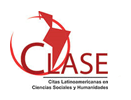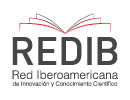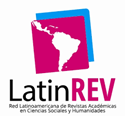Convergence of the oneiric and the allegorical in Manuel Scorza’s narrative
DOI:
https://doi.org/10.21142/DES-1101-2019-101-115Keywords:
Oneiric, allegorical, supernatural, narrative tools, representation of oppressionAbstract
The Peruvian author Manuel Scorza incorporates fantasy and myth into his novels, in order to represent the conflicts between Andean peasants, landowners, multinational mining companies, and the authorities. The author lends his protagonists supernatural characteristics, enabling an oneiric space in which anything seems possible, including the oppressors’ defeat. This textual space is abruptly annulled by the tragic defeat of the peasants. At the same time, such supernatural gifts operate as metaphors for the hopes of Andean people, while highlighting the allegorical dimensions of the main characters.
Downloads
Downloads
Published
Issue
Section
License

Esta obra está bajo una licencia http://creativecommons.org/licenses/by-nc-sa/4.0/

















